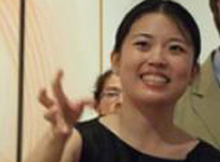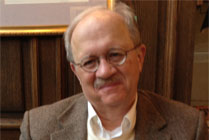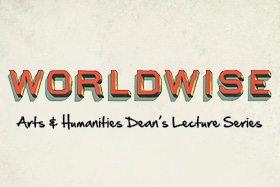ALL events are FREE (ticketed) and open to the public.
Reserve tickets through the Clarice Smith Center online at www.claricesmithcenter.umd.edu or by calling 301.405.ARTS.
David Alan Grier in conversation
Monday, November 12, 2012, 7 PM
Dekelboum Concert Hall Clarice Smith Center
The multitalented comedian and film, television, and Broadway star discusses the creative process, comedy and improvisation, music and his life experiences with culture and race. Named one of Comedy Central’s “100 Greatest Stand-ups of All Time,” Grier was most recently nominated for a 2012 Tony Award for his performance in the critically acclaimed Broadway revival of The Gershwins’ “Porgy and Bess.”
Cosponsored by The School of Theatre, Dance, and Performance Studies
Eric Schlosser in conversation
Wednesday, November 28, 2012, 5:30 PM
Gildenhorn Recital Hall, Clarice Smith Center
Award-winning journalist, producer of the critically acclaimed documentary “FOOD, Inc.,” and best-selling author of “ Fast Food Nation” — selected by TIME magazine as one of the top 100 non-fiction books of all time — discusses the controversial and alarming state of public health, agriculture and the food industry in America.
Cosponsored by UMD Dining Services Green Dining Program
Chimamanda Adiche
Tuesday, February 19, 2013, 5:30 PM
Gildenhorn Recital Hall, Clarice Smith Center
2008 MacArthur Foundation Fellowship recipient and award-winning Nigerian author of “Half of a Yellow Sun,” “Purple Hibiscus,” and “The Thing Round Your Neck,” which was shortlisted for the Commonwealth Writers’ Prize for Best Book in Africa, speaks to the cross-generational significance of storytelling and its enduring impact on the cultural history of our lives.
Cosponsored by the Center for Literary and Comparative Studies and The Institute for International Programs
Cathy Davidson
Thursday, April 18, 2013, 5:30 PM
Gildenhorn Recital Hall, Clarice Smith Center
Professor of English at Duke University, renowned scholar in Digital Humanities and Interdisciplinary Studies, and prolific author of “Now You See It: How the Brain Science of Attention Will Transform the Way We Live, Work, and Learn,” explores how the modern digital age will globally shape the future innovation of learning.
Cosponsored by the ADVANCE Program








